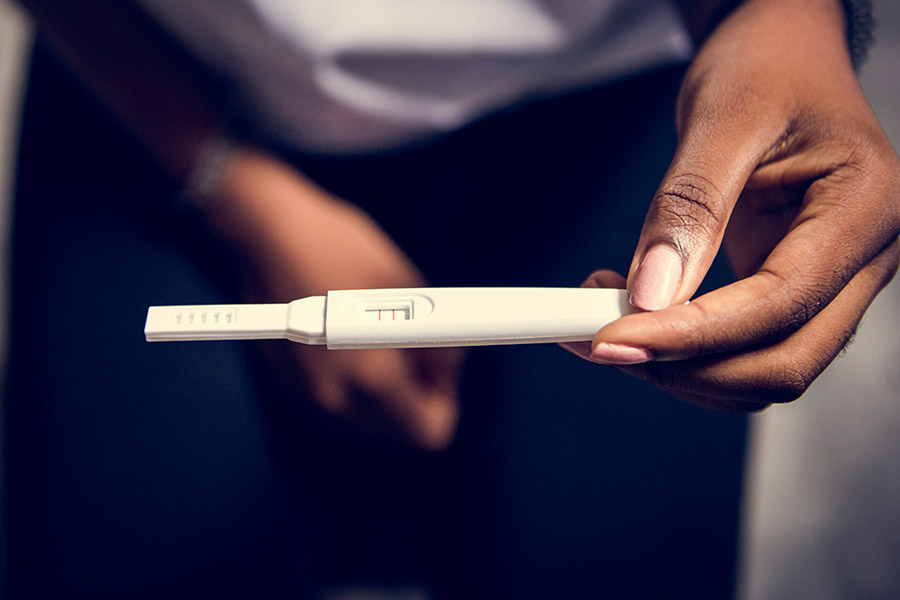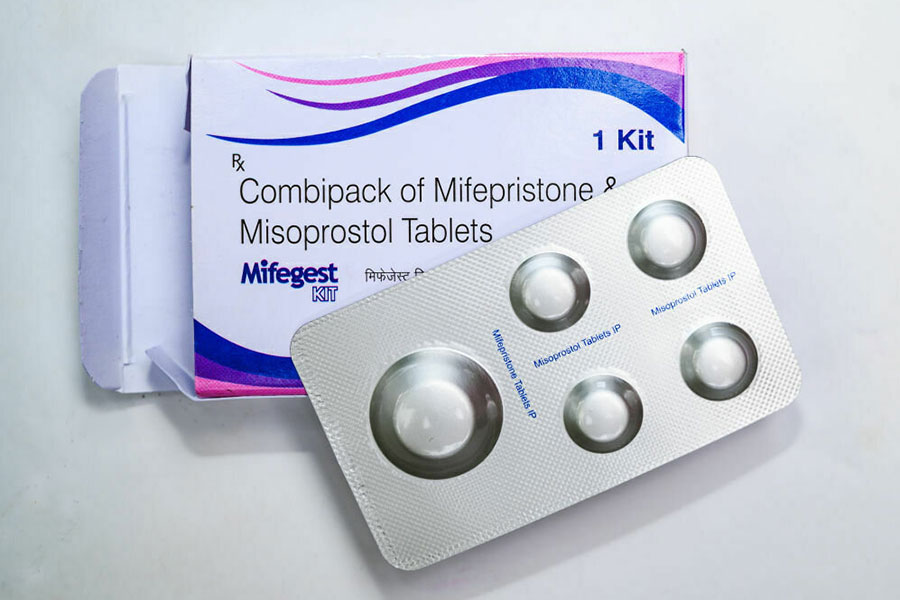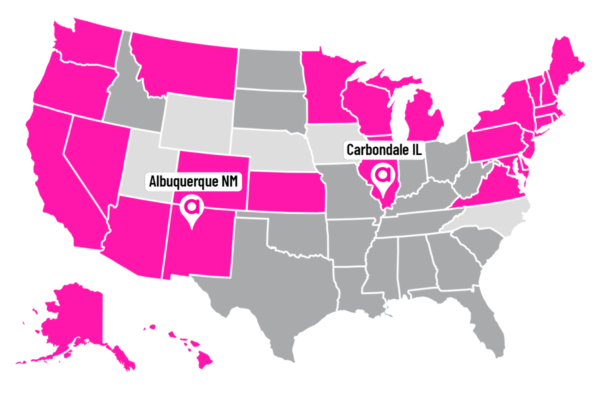
Contents:
- Introduction
- What Is a Medical Abortion?
- How the Abortion Pill Works
- Who Is Eligible for a Medical Abortion?
- How Much Does Medical Abortion Cost?
- Accessing the Abortion Pill: Laws and Restrictions
- What to Expect Before, During and After a Medical Abortion
- Myths and Facts: Addressing Common Concerns and Misconceptions
- Medical Abortion vs Surgical Abortion: Which Is Right for You?
- Frequently Asked Questions About the Abortion Pill
- Your Body, Your Choice
- Alamo
Introduction: The Abortion Pill
Discovering you are pregnant…
when it is not something you planned for or wanted, can come as a shock. But take a deep breath because you have options. One of these is to take the abortion pill to end the pregnancy. This is true even if you have limited financial resources or live in a state where abortion is outlawed.
While making the decision to terminate a pregnancy is a deeply personal and comes with many considerations, being knowledgeable about your options will help you make the best decision for you. This guide is intended to inform you on what you need to know on what has become the most popular form of abortion – medical abortion or the abortion pill as it is commonly called.

A non-surgical option
A non-surgical option for women looking to end a pregnancy during the early stages of pregnancy (11 weeks 6 days or less), the abortion pill is really a combination of two doctor-prescribed medications—Mifepristone and Misoprostol—that work together to safely terminate a pregnancy. It’s a choice that can give you control over your own reproductive health without the need for surgery.
Unlike surgical abortions, which require a medical professional to physically remove the pregnancy tissue from the uterus, the abortion pill works by blocking the pregnancy hormone (progesterone) and causing the uterus to contract and expel the pregnancy. It’s a process that mimics a miscarriage.
When considering a medical abortion…
it’s crucial to be informed about how it works, who is eligible, and the laws surrounding access. Understanding the facts about the abortion pill can help you make an informed decision that’s right for you. Whether you are currently facing an unplanned pregnancy or just want to know your options for the future, this guide will walk you through everything you need to know about the abortion pill.
What Is a Medical Abortion?
A medical abortion refers to the termination of an early pregnancy using prescribed medications instead of surgical procedures. This method relies on the use of two main drugs: Mifepristone and Misoprostol, which together are often referred to as the abortion pill. This procedure is effective for pregnancies up to 11 weeks, though laws and eligibility can vary by region.

Medical Abortion vs. Surgical Abortion
There are two main types of abortion: medical and surgical. Both are safe and effective, but they differ in how they are performed.
Medical Abortion: This involves taking a combination of pills that end the pregnancy without surgery. You can take the medications in a healthcare setting like a doctor’s office, in a private space such as a hotel room, or at home. But wherever you do it, you will need to follow your healthcare provider’s instructions for the process to be safe and effective.
Surgical Abortion: This involves a healthcare provider using medical instruments to remove the pregnancy from the uterus in a clinic setting. Surgical abortions are usually performed later in the pregnancy or when medical abortion is not viable.
Why Choose a Medical Abortion?
Women may prefer a medical abortion for various reasons:
- Privacy: You can take the abortion pill in the comfort of your own home or hotel without medical staff needing to be present.
- Less invasive: No surgical instruments are required, and there is no need for anesthesia.
- Earlier in pregnancy: Medical abortion can only be done early, typically up to 11 weeks 6 days.
Why NOT choose a Medical Abortion?
- Medical abortions require more time to complete compared to the immediate effects of a surgical abortion, which some women may find inconvenient.
- If your pregnancy is longer than 11 weeks 6 days, medical abortion is not considered a recommended or viable option.
How the Abortion Pill Works
The abortion pill is a two-step process that takes place over several hours to days.
Here’s what to expect when you undergo a medical abortion:
Step 1: Taking Mifepristone
The first pill you take is Mifepristone. This drug works by blocking the hormone progesterone, which is essential for maintaining the pregnancy. Without progesterone, the lining of the uterus thins, and the pregnancy cannot continue.
- How it works: By cutting off the hormone supply, Mifepristone ensures the pregnancy cannot proceed.
- Timing: This pill is usually taken in a clinic or at home if prescribed through telemedicine.
Step 2: Taking Misoprostol
The second pill, Misoprostol, is taken 24 to 48 hours after Mifepristone and can be and is often taken at home. Misoprostol causes the uterus to contract, which leads to cramping and bleeding as the body expels the pregnancy. You can expect to experience the effects within a few hours of taking it.
Here’s what to expect:
- Pain: Cramping can be mild to severe and often feels like a heavy period or miscarriage.
- Bleeding: Heavy bleeding with clots is normal and usually lasts for several hours. It can continue as spotting for up to two weeks.
- Possible Side effects: Nausea, diarrhea, and chills are common after taking Misoprostol.
- Completion: The abortion is usually complete within 24 to 48 hours of taking Misoprostol, though the bleeding can last longer.
The entire process of a medical abortion typically lasts for a few days, during which your body will pass the pregnancy.

Who Is Eligible for a Medical Abortion?
While medical abortion is safe for many women, not everyone is eligible for the abortion pill.
The most important factors to consider are listed below.

Health Considerations
Certain health conditions may make the abortion pill a less ideal option. Women with the following conditions can be at greater risk and should definitely speak with their healthcare provider prior to choosing medical abortion:
- Is too far into their pregnancy
- Has a pregnancy outside of their womb (also called an ectopic pregnancy)
- Has a blood clot disorder or serious anemia
- Has adrenal failure
- Is taking steroid medications long-term
- Takes any meds that could affect the drugs needed to end the pregnancy
- Has an IUD (intrauterine device) – a doctor would need to remove this first
- Is allergic to abortive medications
- Can’t get to an emergency room if needed
- Can’t see the doctor for a follow-up appointment
If you think one or more of these things may apply to you, it’s important to ask your doctor.
Legal Time Limits
In most places, medical abortions are only available during the first 11 weeks 6 days of pregnancy. After this point, surgical abortion may be the only option. It’s important to confirm the laws in your area as they can vary.
Consult a Healthcare Provider!
Before undergoing a medical abortion, whether you are perfectly healthy or have any of the risk conditions listed above, it’s important to consult a healthcare provider to make sure you are a suitable candidate. Your healthcare provider will assess your health history, pregnancy stage, and any risk factors to help you make a safe and responsible decision.
How Much Does Medical Abortion Cost?
Alamo Women’s Clinic charges a flat fee of $600 for a medical abortion which covers:
An in-person visit
- Ultrasound
- Consultation
The Abortion
- RU 486 / Mifepristone
- Misoprostol (taken at home)
- Birth control prescription
- Free follow-up visit
Need help paying for it?
If you have health insurance or Medicaid, some or all of these costs may be covered. Call your insurer and ask what your plan covers. If you need help paying for the procedure, there are numerous abortion funds that may able to help. You can start here for more info.

Accessing the Abortion Pill: Laws and Restrictions
Abortion laws vary widely by state, so accessing the abortion pill can look different depending on where you live.

Abortion pill laws vary by state
With the overturning of Roe v. Wade in 2022, abortion laws in the U.S. are now determined by individual states. With these recent legal shifts, access to medical abortion has become a critical issue. The Dobbs decision, which overturned Roe v. Wade, has made it harder for women in certain states to access abortion care, including the abortion pill.
Some states have restricted access to both surgical and medical abortions, while others have expanded telemedicine options for receiving the abortion pill.
AbortionFinder.org also offers a comprehensive state-by-state guide here.
How to Access the Abortion Pill
In-clinic: Many clinics provide the abortion pill after an initial consultation. Some clinics may also offer follow-up care.
Telemedicine: In regions where telemedicine for abortion is legal, you can consult a healthcare provider via an online video appointment or by phone and have pills shipped to you.
Online providers: In some cases, women may turn to online pharmacies to obtain the abortion pill. It’s essential to be cautious of unreliable or unsafe providers.
If you buy abortion pills online, make sure to only buy them from a trusted, reputable source!
Here’s how to tell good sellers apart from bad/illegal ones:
Check your state’s “board of pharmacy.” All pharmacies, including online ones, are regulated by each state. Visit for your state’s board of pharmacy website for a list of state-approved online pharmacies as well as info on rules and regulations.
Look for pharmacies that are NABP-accredited. The National Association of Boards of Pharmacy (NABP) reviews internet pharmacies and provides accreditation for those that follow federal and state laws as well as pharmacy practice standards.
Visit the NABP’s “Buy Safely” page and enter an internet pharmacy’s website and find out if it’s approved or not. But keep in mind, because so many online pharmacies have started up in recent years, the site you enter may be one that the NABP hasn’t reviewed yet,
The NABP also provides a “Not Recommended List” of over 35,000 websites you should stay away from because they fail to follow safe pharmacy practice standards or the law.
Tips to identify illegal sellers. Signs that an online abortion pill seller is not operating safely and legally are:
- They don’t require a valid prescription
- They sell drugs that aren’t approved by the FDA
- They do not have a pharmacy license in the state where they are located or in each state where they dispense drugs
What to Expect Before, During and After a Medical Abortion
A medical abortion can be a significant physical and emotional experience. Understanding what to expect both before, during and after the process can help you prepare and manage any challenges that arise.

Before the Abortion
You’ll meet with a doctor – in person, online or by phone – to discuss your health history to make sure that medical abortion is safe for you. Most will also explain the pros and cons of the procedure – but if they don’t you can ask, plus ask any other questions you have about the procedure.
If you see a doctor in person, they will confirm that you are pregnant and if so, figure out how many days you’ve been pregnant. Your state may also require might need to get an imaging test called an ultrasound. Some states require an ultrasound even though it is not medically necessary.
Your doctor may also:
- Give you a blood test
- Offer to test you for sexually transmitted diseases (STDs)
- Discuss what type of birth control you wish to use after your abortion
Some states require a waiting period (usually 24 hours) between your doctor’s consultation and the abortion. In other states, you can get an abortion on the same day.

During the Abortion
Once you take the second pill, Misoprostol, the physical process of the abortion will begin. Typically, it takes a few hours for the medication to induce cramping and bleeding.
- Cramping: The cramping will likely start a few hours after taking Misoprostol and will intensify as your body expels the pregnancy. These cramps may be more intense than regular menstrual cramps but can vary in severity.
- Bleeding: Expect heavy bleeding as the pregnancy tissue is passed. The bleeding is typically heaviest within the first 4-6 hours but can continue for several days. Large clots may also be passed during this time.
- Duration: Most women complete the abortion process within 24 to 48 hours, although bleeding and spotting may last for up to two weeks.

Recovery and Aftercare
After the pregnancy is expelled, you may continue to experience light bleeding or spotting for a few weeks. Here are some tips for a smoother recovery:
- Pain management: Over-the-counter pain relievers like ibuprofen can help reduce cramping. Avoid aspirin, as it can increase bleeding. Also avoid any activities that cause you pain.
- Give yourself a chance to heal: The standard wisdom used to be – don’t have sex or put a tampon, douche, or any other item into your vagina for 1 to 2 weeks after a medical abortion to allow your body to heal. But today we tell women to listen to their bodies – you can decide what you are and aren’t ready for. We also advise, using pad makes it easier to monitor bleeding.
- Rest: Plan to take it easy for a couple of days. Avoid heavy lifting and strenuous activities.
- Get follow-up care: It’s important to follow up with your healthcare provider to ensure the abortion was complete and that there are no complications, such as infections or retained tissue.
- Get birth control: You can get pregnant again quickly right after an abortion.

Emotional Recovery
Just as every woman’s physical experience with a medical abortion varies, the emotional experience can also differ greatly. Some women feel relief, while others may experience sadness, guilt, or mixed emotions. These feelings are normal. If you find yourself struggling with your emotions after a medical abortion,, you can and should seek help:
- Support system: Surround yourself with people who support you. Whether it’s friends, family, or a counselor, having someone to talk to can help with the emotional aftermath.
- Counseling: Consider speaking with a mental health professional or seeking post-abortion counseling services.

When to Seek Medical Help
While medical abortions are generally safe, there are signs that may indicate complications. Contact your healthcare provider if you experience any of the following:
- Extremely heavy bleeding (soaking two pads per hour for two consecutive hours)
- Severe abdominal pain that isn’t relieved by pain medication
- Fever or chills that last more than 24 hours
- Foul-smelling discharge
Myths and Facts: Addressing Common Concerns and Misconceptions
There are many misconceptions about medical abortion and the abortion pill, which can lead to confusion and unnecessary fear. Here, we’ll address some of the most common concerns.
Is the Abortion Pill Safe?
Yes, the abortion pill is safe for most women when prescribed by a healthcare provider. The medical abortion process has been approved by health organizations worldwide, including the World Health Organization (WHO) and the U.S. Food and Drug Administration (FDA). Complications are rare and usually manageable when care is received promptly.
Does the Abortion Pill Affect Future Fertility?
No! One of the most persistent myths is that taking the abortion pill can cause infertility. However, there is no evidence that medical abortion affects future fertility. Women who have undergone medical abortion can still become pregnant and carry a healthy pregnancy in the future.
Emotional Aftermath: Will I Feel Guilty or Depressed?
The emotional aftermath of an abortion varies widely from woman to woman. Some women feel a sense of relief, while others may experience more complex emotions such as sadness or guilt. These feelings are normal and can often be processed with the support of friends, family, or a counselor. If you are experiencing intense or prolonged feelings of sadness, seeking professional counseling can be beneficial.
Will It Be Painful?
The abortion pill can cause cramping and discomfort, similar to intense menstrual pain. Pain levels vary from person to person. Over-the-counter pain relief medications can help manage the discomfort.
Abortion Pill Myths and Facts
There are some common myths about the abortion pill that are the result of lack of knowledge or disinformation by those who do not support a woman’s right to choose. Here are the most common myths… and the facts.
Myth: Medical abortion is dangerous or unsafe.
Fact: When taken under medical guidance, it is a very safe option.
Myth: The abortion pill causes infertility.
Fact: Medical abortion does not affect your ability to have children in the future.
Myth: The abortion pill is ineffective.
Fact: The abortion pill is 98% effective for pregnancies up to 11 weeks 6 days and is considered very safe by medical standards.
Myth: You must be in a clinic to take the abortion pill.
Fact: In many places, the abortion pill can be taken at home after a telemedicine consultation with a healthcare provider.
Medical Abortion vs Surgical Abortion
Which is Right for You?

When deciding between a medical and surgical abortion, it’s important to understand the differences in both methods and consider which is best for your individual situation. Each method has its pros and cons, and your decision should be based on personal preference, health factors, and access to care.
Medical Abortion (Abortion Pill)
Pros:
- Non-invasive and can be done in the privacy of your home or hotel.
- Feels more natural, as it mimics a miscarriage.
- No anesthesia required.
Cons:
- Can take several hours or days to complete.
- Involves heavy cramping and bleeding.
- Requires multiple steps and follow-up care.
Surgical Abortion
Pros:
- Quick procedure (usually takes 10-15 minutes).
- Can be performed later in pregnancy (up to the second trimester in many regions).
- Less bleeding after the procedure compared to medical abortion.
Cons:
- Requires a visit to a clinic and medical instruments.
- May require anesthesia or sedation.
- Higher cost in some cases.
Factors to Consider
When choosing between medical and surgical abortion, you need to consider the following factors:
- Stage of pregnancy: Medical abortion is only available in the early stages of pregnancy (up to 11 weeks 6 days), while surgical abortion can be performed later.
- Privacy: If you prefer privacy and want to avoid a clinic, medical abortion may be a better fit.
- Time: Surgical abortions are quicker and often completed in one visit, while medical abortions take several days to complete.
- Emotional considerations: Some women may prefer the less invasive nature of the abortion pill, while others prefer the speed of a surgical procedure.
Frequently Asked Questions About the Abortion Pill
Many women have questions about medical abortion and the abortion pill.
Here are answers to some of the most frequently asked questions…
How Effective Is the Abortion Pill?
The abortion pill is highly effective, with a success rate of over 95% for pregnancies up to 11 weeks 6 days. In rare cases where the abortion is incomplete, a follow-up procedure (either another dose of medication or a surgical abortion) may be needed.
Can I Buy the Abortion Pill Online Safely?
In some states, the abortion pill is available through online providers. However, it’s crucial to ensure that the provider is reputable. In states where telemedicine for abortion is legal, a healthcare provider can prescribe the abortion pill and mail it to you. Be cautious of unauthorized websites selling counterfeit or unsafe products.
How Long Does It Take to Recover After a Medical Abortion?
Most women physically recover within a few days to a week after taking the abortion pill, though light bleeding or spotting can continue for up to two weeks. Emotional recovery may take longer, depending on the individual. It’s important to rest and seek emotional support if needed.
Can Someone Else Pick Up the Abortion Pill for Me?
In some places, a partner or trusted friend can pick up the abortion pill from a clinic or pharmacy for you, provided you’ve completed a telemedicine (video or phone) consultation or have been prescribed the medication by a doctor.
Is the Process Painful?
The level of pain experienced during a medical abortion varies between individuals. The process can cause cramping and discomfort, similar to menstrual cramps, but for some women, the pain may be more intense. Pain relief, such as ibuprofen, can help manage the discomfort.
Can I Have a Medical Abortion If I Am Breastfeeding?
Yes, it is generally safe to have a medical abortion while breastfeeding. However, you should discuss this with your healthcare provider, as small amounts of the medications may pass into breast milk. You may be advised to wait a few hours after taking the pill before breastfeeding again.
Your Body, Your Choice!

Because deciding to have an abortion is a deeply personal choice, it should be YOUR choice. That’s why it’s important for you to feel empowered with the information you need to make the best decision for you. The abortion pill offers a safe and effective way to end an early pregnancy, allowing women the option to manage their reproductive health on their own terms.
Access to the abortion pill varies depending on where you live, but in many places, telemedicine has made it easier to access medical abortion services from the comfort of your home. It’s essential to seek out reliable healthcare providers, whether in person or online, to ensure that you receive safe and appropriate care.
If you are considering a medical abortion, take the time to consult with a healthcare provider and explore your options. Be aware of your own physical and emotional needs throughout the process and seek support if you need it. Whether it’s talking to a trusted friend, joining a support group, or seeking counseling, remember that you don’t have to go through it alone.
Above all, know that your decision about your body and your future is yours to make. Understanding the facts about the abortion pill can help you make informed, confident choices about your reproductive health. Whatever your decision, support and resources are available to guide you through this journey. We at Alamo Women’s Clinic are happy to offer the guidance you need – call us at 1-800-821-7237!
Alamo Women’s Clinic: Supportive Care for Your Reproductive Health
Having access to safe abortion services is vital for women’s health and well-being. It allows individuals to make informed choices about their bodies and futures. Clinics like Alamo Women’s Clinic prioritize safety and confidentiality, ensuring a dignified and empowering experience.
Seeking a safe and confidential abortion clinic in New Mexico or Illinois? Alamo Women’s Clinic offers compassionate care and online scheduling to meet your needs. We prioritize your privacy and provide individualized attention in a supportive environment. Check out our website, or call us at 1-800-821-7237 with any questions. Our team is here to help!
